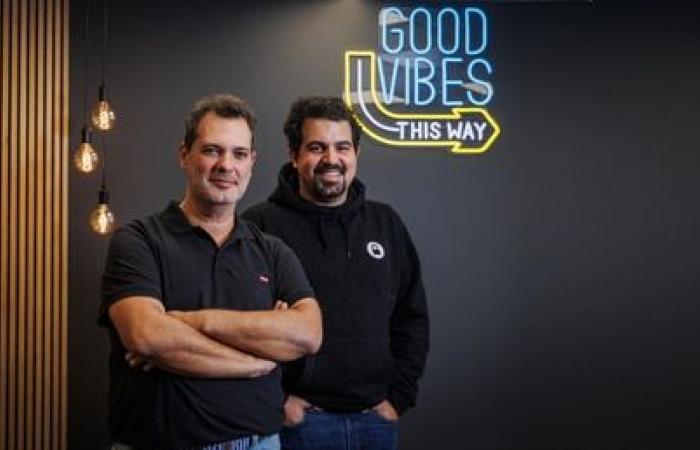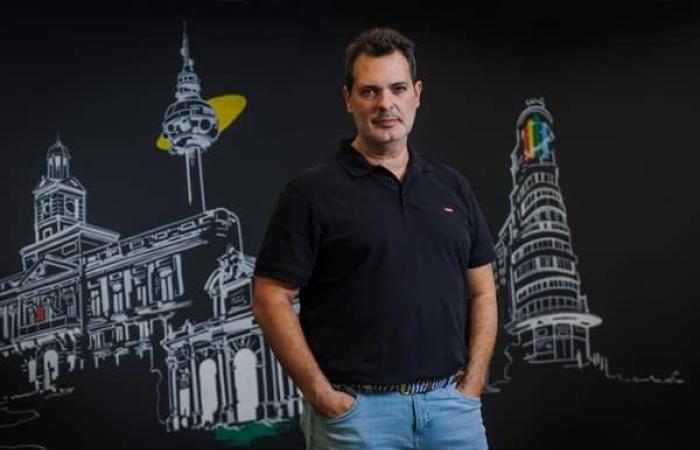The CEO of Onum, Pedro Castillo, is an old acquaintance in the Spanish technology sector. He was responsible for creating Bankinter’s security team. In 2011, after 11 years working at said entity, he decided to take flight and launch a new project: LogTrust, which was one of the most innovative startups of 2018.
The new company gathered all the experience acquired at the bank, where it had led the development of Bitácora, a log analysis tool, sequential and chronological records of the operations of a computer system that help detect and analyze errors and problems in the network or systems, such as security incidents, for example. Furthermore, he not only left Bankinter, but he took with him some of the members of his team.
That company ended up becoming Devo, which today is one of the main security and data analytics companies in the world and the first Spanish unicorn in the field of cybersecurity.
Castillo left the company in 2022. “We started with five people. When I left, we had more than 500 employees and it had a valuation of $2 billion,” he says.
He was at the helm for seven years, until the company took off and Insight Venture Partners joined as an investor. “Ceasing to be CEO of Devo was not a trauma for me. It was a decision. If you want to grow up in the United States, you have to have relationships that you didn’t have at that time. So the best thing was to look for an American CEO and focus on what I liked most, which was creating teams, technology and product,” he declares.
Start again from scratch
He remained with the company for another four years, until he realized that the time had come to seek new challenges. “Devo was a large company, with a different mentality than the company I created. Neither better nor worse; different. It was a very thoughtful decision. But the company already had everything it needed. My leaving didn’t put her at risk. I thought I had earned the right to go out and do what I love most, something I couldn’t do in the same way at such a large company. I wanted to start from scratch again. Not only because I have a new challenge, but because it is where I think I contribute the most,” she explains.
So he founded Signalit, pulling on a loose thread he had discovered while working at Devo. “I had realized the problems that users have when sending their data to analytical platforms. Exactly the same as when I left Bankinter and created Devo, I decided to look for solutions to specific problems that I knew very well,” says this entrepreneur.
His presence at the head of this new project was a guarantee of success, which is why the new company managed to raise a financing round of 11.6 million euros in June of last year, with Insight Partners and Kibo Ventures at the helm, partners those that Castillo already knew about Devo.
Furthermore, last October, as we already mentioned, it acquired Noister, a startup founded by Lucas Varela, giving rise to Onum, the result of the fusion of both. “He set up Noister shortly before I left Devo. We appreciate each other as professionals and as people and we considered the possibility of joining our projects. As we were in the product creation phase, we divided the work, made a joint business plan and set some milestones. And when we reached them, we decided that it was time to bring the companies together,” he says.
It seems that this movement has convinced the market, because the company managed to close a new financing round of almost 26 million euros in April of this year, an operation led by Dawn Capital, the main investor specialized in B2B software of Europe, and in which it has once again had the support of Insight Partners and Kibo Ventures.
What does Onum do?
While working at Devo, Castillo realized that clients were not aware of the data they were sending to analytics or cybersecurity platforms. “If you ask any customer on platforms like Devo or Splunk what data they sent yesterday, they all tell you they have no idea,” he says.
This lack of control causes costs to skyrocket. Furthermore, it must be taken into account that not all data has the same value. “Almost all analytics platforms bill by volume of computed data. One of the things we learned at Devo is that the client sends data with little or no value, but pays for all the data at the same price. This happens because the systems that generate this data at source do so in formats that have a lot of structure that does not confer value. For example, field names, fields with null values, numbers with many decimal places, etc.,” he clarifies.
The first thing Onum does is optimize this data so that its clients reduce their bills. “A client who hires us will start paying 50% less for their analytics platform, because half of that data simply has no value. It is essential that the client sends the data that makes sense,” he emphasizes. This makes the return on investment immediate.
Data optimization also allows security and analytics platforms to perform better, identifying the data that can most drive business impact and improve security.
Onum focuses on optimizing the data that its clients send to platforms
analytics, reducing costsPedro Castillo, CEO of Onum.
In this way, Onum analyzes the data it receives from its client to determine which data it sends to its analytics platform, which it deletes, or which it retains. This allows you to control the flow of your data in real time, to know what is being done with it. “We give the client the governance of your data. We offer auditing and control through a platform with an interface with which the client knows what he has sent, when, how, where and why, with total granularity,” specifies the CEO.
Likewise, Onum allows you to run your own or third-party applications that analyze data in transit in real time, with the aim of enriching it so that the organization extracts greater value from it.
Castillo assures that there is no company in our country that offers a proposal like his. And internationally, only the American company Cribl offers something similar, although it is only limited to data reduction.
Who is it addressed to?
The CEO of Onum ensures that its solutions adapt to any user of analytics or cybersecurity platforms, “because no one likes to waste money. It doesn’t matter if they are big or small, because they are going to save a percentage. If they spend 10,000 euros a year, then they save 5,000 euros. And if they spend 10 million, they save 5 million. The larger the company, the greater the savings,” he comments.
At the moment, Onum is aimed at companies of a certain size. “We are going to be more focused on medium and large clients and on a B2B-oriented business. From the point of view of go to marketour pillars will be clients in the field of cybersecurity – MSSP service providers (managed security service provider), for example– and telcos, with use cases related to 5G or the Internet of Things, where our solution fits perfectly,” he points out.
However, Castillo anticipates that this year he plans to launch a model freemium for all types of users. “They can register on the platform and use it with certain limitations, and then try to convert them into paying customers,” he clarifies.
Regarding its business model, it is similar to that offered by analytical platforms, since it bills based on the volume of data received from its clients. “If the client sends us 10 terabytes of data per day, there are 5 of us terabytes. Then, the customer starts paying 5 terabytes to your analytics platform and 10 terabytes to us, but the price per terabyte is not the same. Our price is infinitely below the price of terabyte of the analytical platform. After paying everything, to us and to their analytical platform, the client saves a minimum of 35% of the costs,” says Castillo.
Pedro Castillo, CEO of Onum.
Ease of deployment is another of its main commercial arguments. “The product is implemented very quickly and very easily, without interrupting the service. And it can be deployed in the data center from the client or in the cloud,” he emphasizes.
In addition, it is almost invisible to the end user, so it avoids the problem of having to deal with resistance to change, so common in organizations when considering migrating systems or applications.
“When you go to a company and tell them that the solution you offer is much better, but that their users are going to have to stop using something and start working with something else, it is very complex. In our case, the user continues using the same, since he will continue using platforms such as Devo, Splunk, Elasticsearch or QRadar, but stopping sending data that makes no sense. The user’s brake disappears. You might not even know that Onum is there,” he emphasizes.
A promising future
The company launched its product on the market this spring, after carrying out three proofs of concept with future customers. “These are companies that we have been working with to test the solution and ensure that everything is aligned with their needs,” declares the founder and CEO.
These companies were Spanish or had a relationship with our country, but Castillo assures that Onum has a “global mentality from day one.” In fact, the resources raised in the financing operation closed in April will be allocated primarily to promoting its implementation in the US market.
“Setting up a commercial team in the United States is tremendously expensive, but our idea is to go directly there,” he says. Onum had planned to disembark on the other side of the Atlantic in the second half of this year, although the latest round could speed up the process. In addition, he has other points marked on his roadmap.
“We are setting up a marketplace where we or other companies can develop applications to which the client can subscribe,” concludes Castillo.
David RamosSince 2006, I have been a freelance journalist specialized in economic, technical and sector information.
Share







